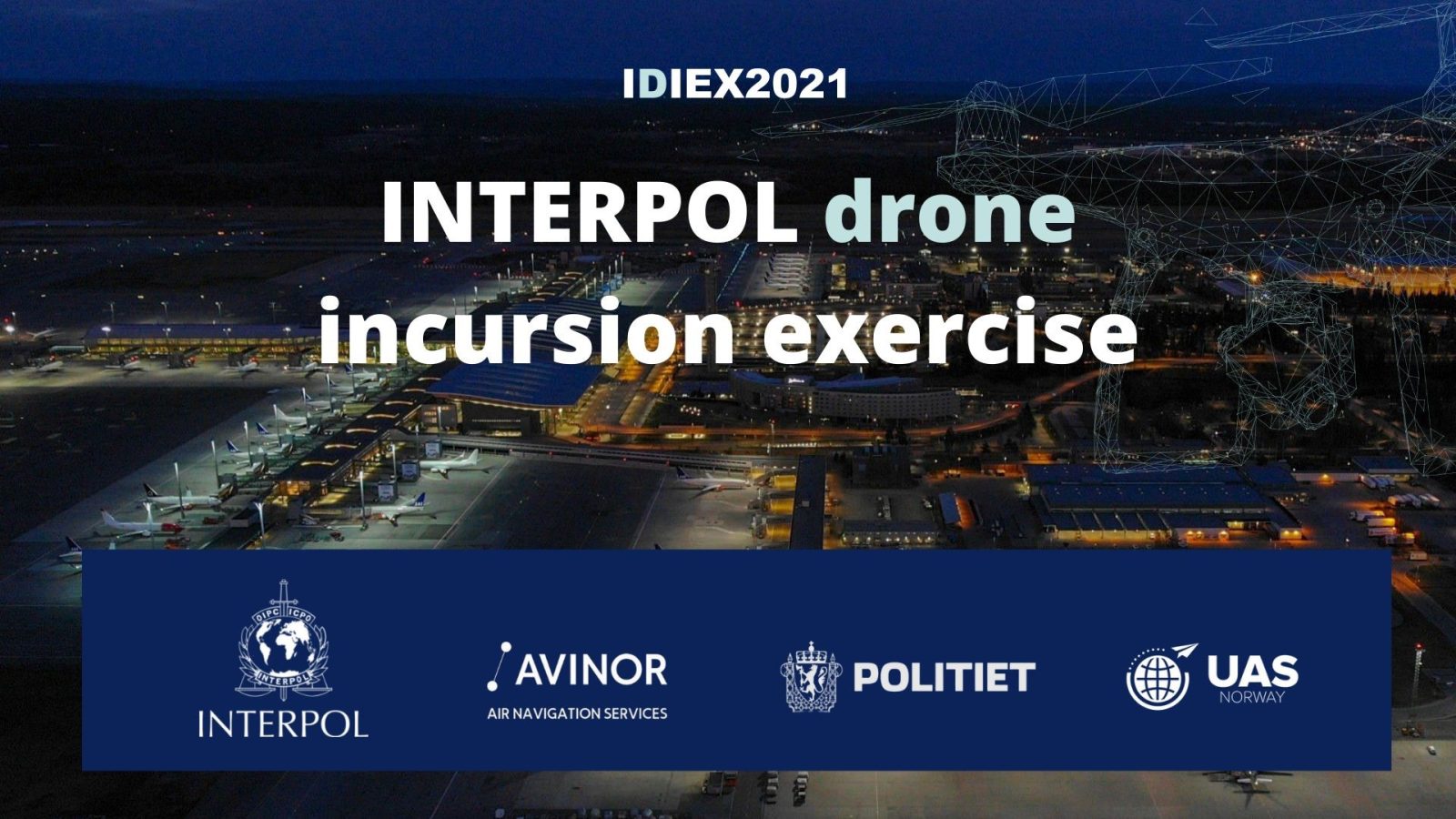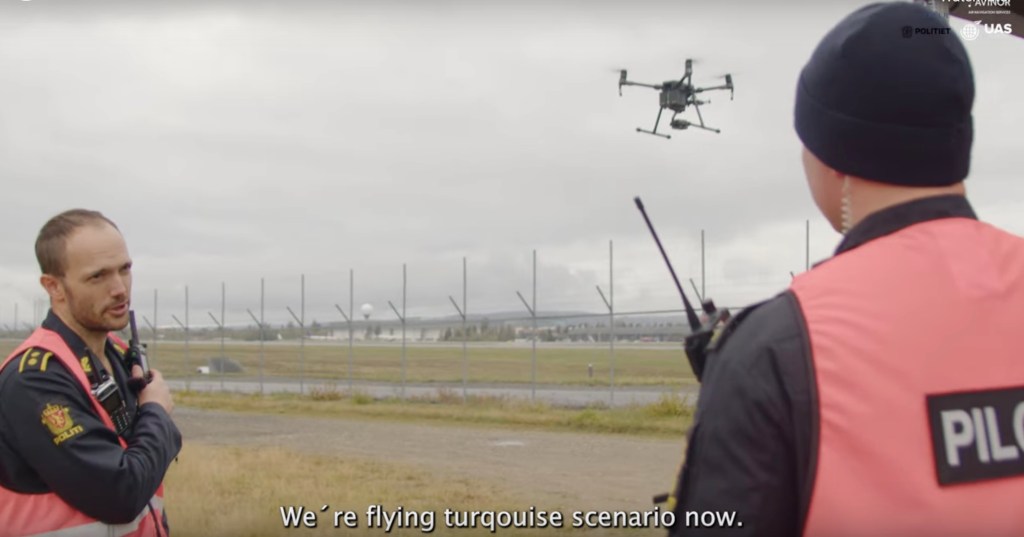
Interpol took its global police cooperation mission to the skies during a three-day series of tests at Oslo’s Gardermoen airport, part of its effort to develop a set of international counter-drone systems that member countries can draw from to protect restricted zones from small craft intrusions.
Interpol and Norwegian police organized what they said were the largest international trials of counter-drone systems in a live, normally operating airport environment. The three days of tests took place at the end of September, and were attended by law enforcement, academic, and industry experts from Europe, Israel, and the US. The ambitious program staged 2,025 different flights on uncrewed aerial vehicles (UAV) using a wide array of detection, identification, tracking, and neutralization technologies.
The objective, Interpol says, is to pool assets and knowledge that will provide member states with the information and means of assuring the security of restricted of airports, prisons, critical infrastructure, and cities where over-flight is banned.
“Member countries are facing threats from drones every day, and this technology is so new and emerging they need to understand it better than they currently do,” says Christopher Church, a senior mobile forensics specialist with Interpol. “So we are working with member countries and the industry to enlarge and enhance their knowledge and expertise so they can select the appropriate solution for the appropriate task.”

For security reasons, Interpol did not provide specifics on the various international counter-drone systems tested, or the results of those trials. It did, however, give general information on the program, which began with a focus on passive detection platforms, then moved on to radar, multi-sensor systems, and a series of neutralization methods. Each approach was examined and graded based on specific criteria. The results will be consolidated into a Drone Countermeasure Framework that Interpol will make available to all 194 member nations.
Through that, the organization hopes to create a network of shared knowledge and collaboration. That, it hopes, will allow more advanced countries to leverage their strengths and insights in forging a common set of international counter-drone systems, and assist countries less prepared to face the threats presented by invasive or hostile UAV to rise to those challenges more swiftly.
Interpol notes that many countries haven’t passed laws permitting authorities to intercept and intervene against drones, even when those are in violation of airspace restrictions. Others have the legislative means to respond, but are still unsure about the best technological solutions to deploy at differing protected facilities. Results from the Oslo tests are designed to inform officials from all members states as they take measures to deal with the expanding presence and potential threats of UAVs.
In similar fashion, Interpol’s Innovation Centre has partnered with the European Union’s Project Courageous to establish a Europe-wide framework for the selection, testing, and assessment of international counter-drone systems by law enforcement officials. In May, 2020, the unit also published a Framework for Responding to a Drone Incident for First Responders and Digital Forensics Specialists to coordinate safe and effective UAV deployment in emergencies.
FTC: We use income earning auto affiliate links. More.



Comments